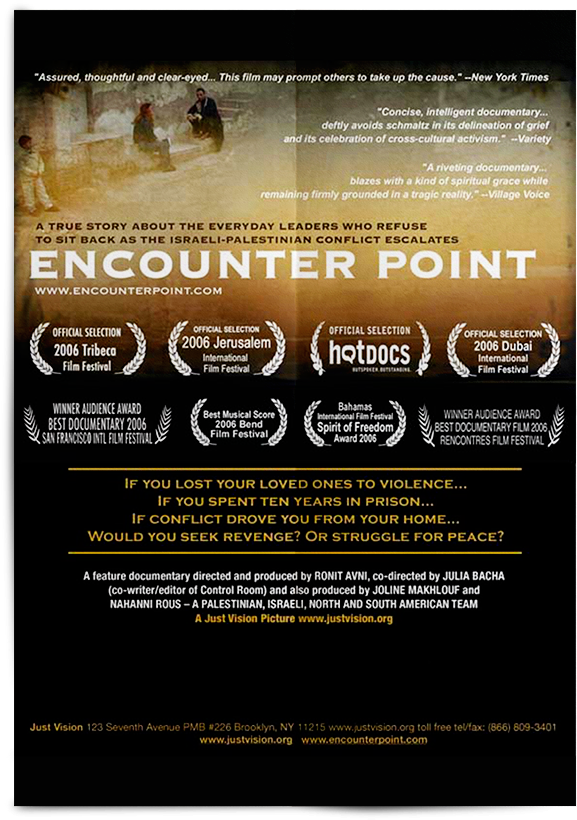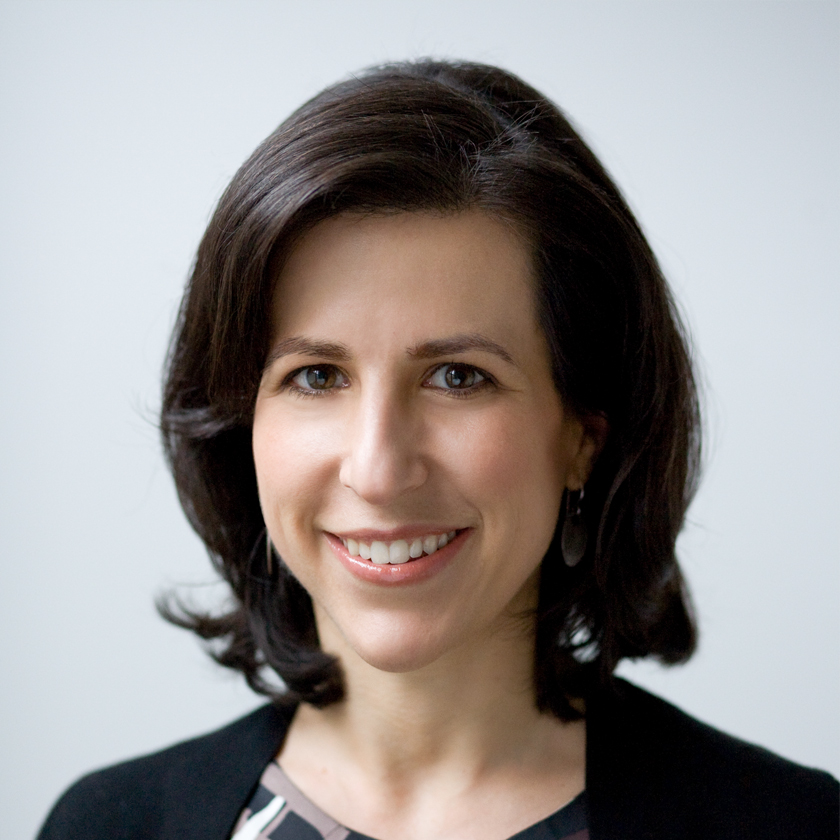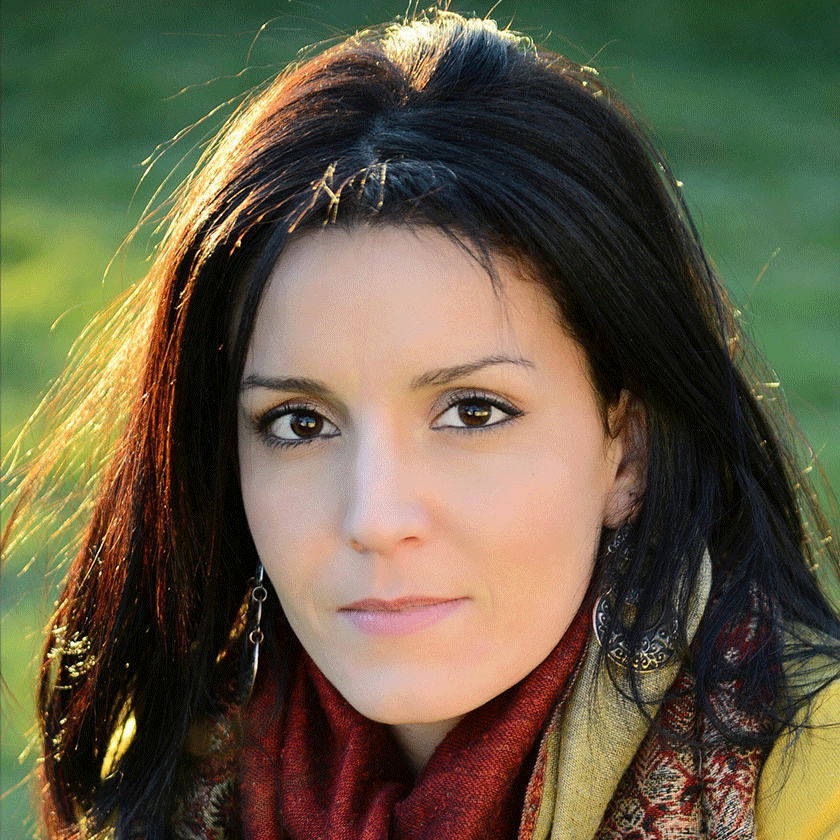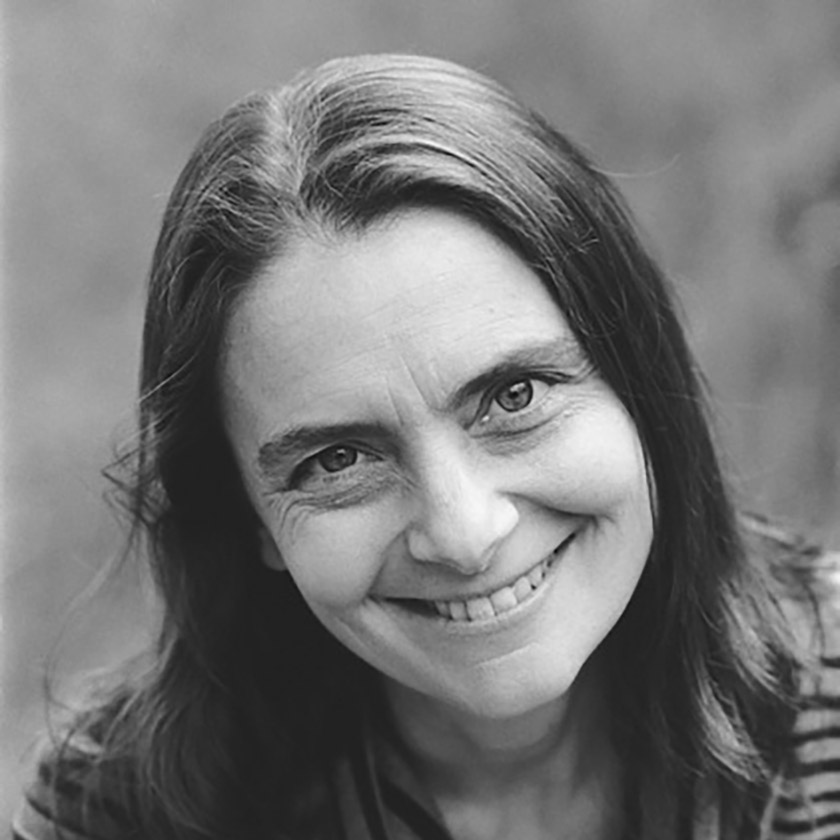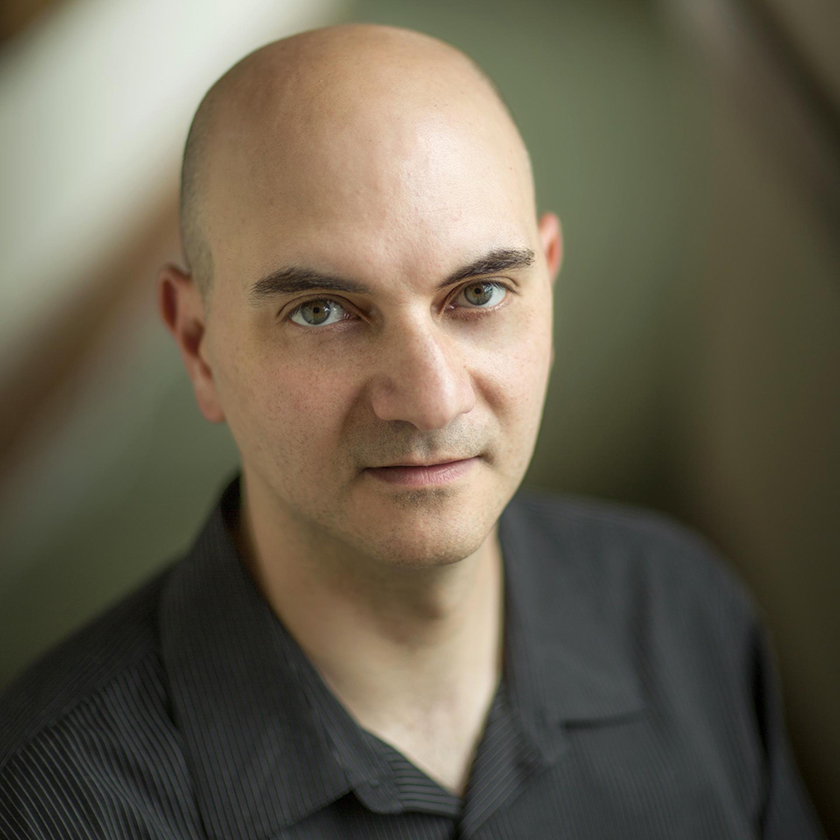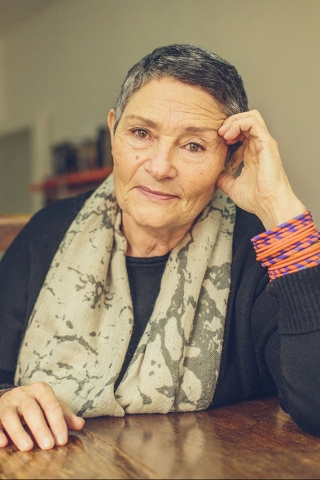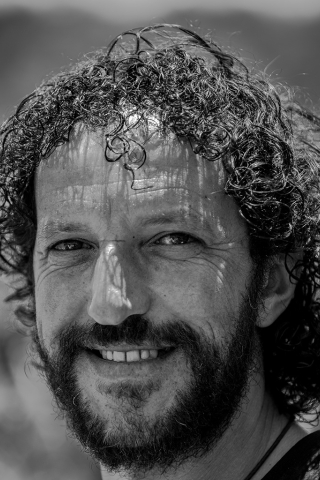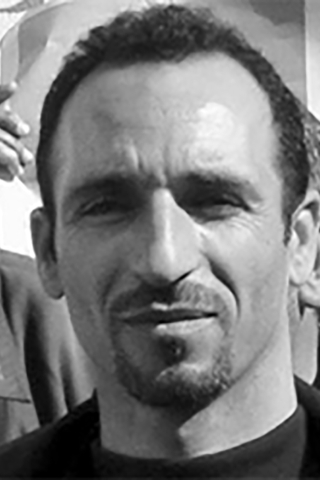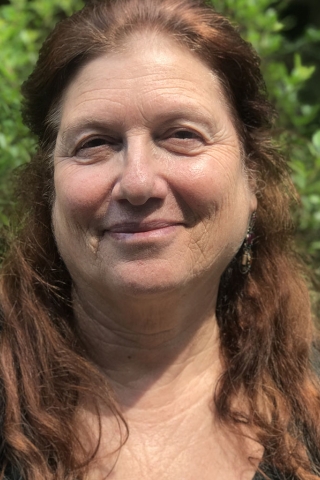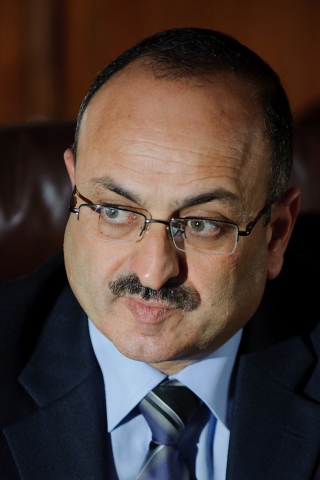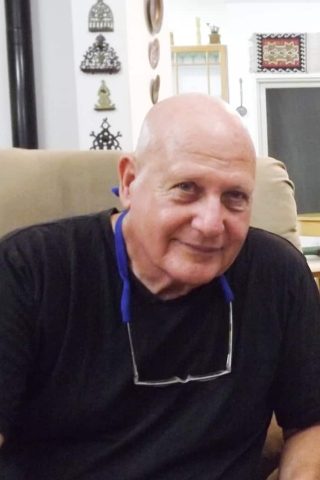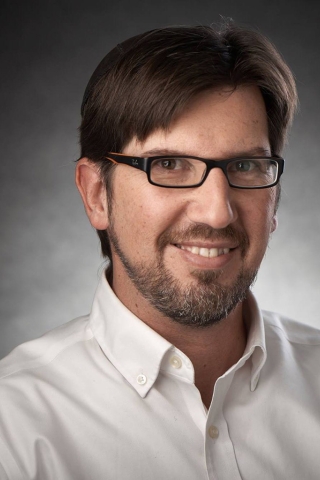
Just Vision Presents
Encounter Point
A story of everyday leaders who refuse to sit back
as the Israeli-Palestinian conflict escalates.
WATCH THE FILM
Sometimes I'm faced with questions like: "How can you still do this after all you've been through? You could have great status in your society. You have the right to hate." But I tell them I don't have to love Israelis to make peace with them. And I'm not asked to forgive the soldier who killed my brother. I'll never forgive him.
Ali Abu Awwad, Palestinian
Sometimes I'm very angry with myself that I didn't protect my child. So what do you do with this pain? Do you take it and look for revenge and keep the whole cycle of violence going, or do you choose another path to prevent further death and further pain to other parents."
Robi Damelin, Israeli
Reverberations from the Israeli-Palestinian conflict are felt worldwide. It is perhaps the most divisive, polarizing and documented political issue of our time. Encounter Point moves beyond sensational, dogmatic and canned images to tell the story of an Israeli settler, a convicted Palestinian fighter, a bereaved Israeli mother and a wounded Palestinian ex-prisoner who sacrifice their safety, public standing, communities and homes in order to press for a grassroots movement for nonviolence and peace. Their journeys lead them to the unlikeliest places to stem hatred among their peoples and confront fear within themselves. Encounter Point explores what drives these and thousands of other like-minded civilians to overcome anger and grief to work for peace. Without dogma or righteousness, it implicitly asks why, with the world's cameras focused on this conflict, we have never heard about these courageous and vital efforts?
The film's protagonists, true civic leaders, endure suicide bombings and checkpoints to meet with militants on both sides, the wounded and apathetic masses. Audiences are left with a sense that the gulf between Israelis and Palestinians is at once bridgeable and tremendously wide.
Ali Abu Awwad, Palestinian
Sometimes I'm very angry with myself that I didn't protect my child. So what do you do with this pain? Do you take it and look for revenge and keep the whole cycle of violence going, or do you choose another path to prevent further death and further pain to other parents."
Robi Damelin, Israeli
Reverberations from the Israeli-Palestinian conflict are felt worldwide. It is perhaps the most divisive, polarizing and documented political issue of our time. Encounter Point moves beyond sensational, dogmatic and canned images to tell the story of an Israeli settler, a convicted Palestinian fighter, a bereaved Israeli mother and a wounded Palestinian ex-prisoner who sacrifice their safety, public standing, communities and homes in order to press for a grassroots movement for nonviolence and peace. Their journeys lead them to the unlikeliest places to stem hatred among their peoples and confront fear within themselves. Encounter Point explores what drives these and thousands of other like-minded civilians to overcome anger and grief to work for peace. Without dogma or righteousness, it implicitly asks why, with the world's cameras focused on this conflict, we have never heard about these courageous and vital efforts?
The film's protagonists, true civic leaders, endure suicide bombings and checkpoints to meet with militants on both sides, the wounded and apathetic masses. Audiences are left with a sense that the gulf between Israelis and Palestinians is at once bridgeable and tremendously wide.
Over the last decade, in the face of devastating violence and pain, thousands of ordinary people have been stepping forward to end the bloodshed, preserve human rights and promote reconciliation among Israelis and Palestinians. Yet even though Palestinians and Israelis who support peace outnumber the militants, their voices are continually drowned out by sensational, explosive headlines. Keenly aware of this gap in media coverage, I assembled a crew of Palestinians, North Americans and Israelis to document a few of these forgotten heroes. After 475 preliminary interviews, 2 years of research and 16 months of production, our multi-national, multi-lingual team selected a handful of subjects from both sides, built unprecedented relations of trust with them, and gained deep access to their lives and work.
Encounter Point tells the story of several Palestinians and Israelis who have sacrificed something deeply precious to them as a result of the conflict. These characters have lost liberty, community, public standing, safety and homes. Some even lost children. Yet all have confronted their anger and grief in order to press for a dignified end to the conflict. As Ali Abu Awwad, one of the main protagonists of the film states, "Sometimes people ask me, 'how can you do this after all you've been through?' But I tell them, 'I don't have to love Israelis to make peace with them, and I'm not asked to forgive the soldier who killed my brother, I will never forgive him.'"
Our subjects' stories are by no means romantic; they face widespread opposition, and at times trip on their own feet. Yet they persevere. We follow them from Telmond to Tulkarem; from a suicide bombing in Tel Aviv to the funeral of a 12-year-old Palestinian girl in Bethlehem, to the first conversation between a former Israeli settler and a former Palestinian prisoner. The film's subjects are at the vanguard of a movement to push Palestinian and Israeli societies to reach a tipping point, forging a new consensus for nonviolence and peace. Perhaps years from now, their actions will be recognized as a catalyst for constructive change in the region.
Shot in Arabic and Hebrew by a team that wholly mirrors the subject matter, Encounter Point is a film about hope, about true courage and, implicitly, about silence – the silence of journalists and politicians who pay little attention to vital Palestinian and Israeli grassroots peace efforts. As Robi Damelin, a bereaved Israeli mother states, "There is no pro-Israeli or pro-Palestinian, there is pro-solution." Encounter Point moves beyond sensational images and challenges all of us to look for the civic leaders within our midst.
Ronit Avni (2006)
Encounter Point tells the story of several Palestinians and Israelis who have sacrificed something deeply precious to them as a result of the conflict. These characters have lost liberty, community, public standing, safety and homes. Some even lost children. Yet all have confronted their anger and grief in order to press for a dignified end to the conflict. As Ali Abu Awwad, one of the main protagonists of the film states, "Sometimes people ask me, 'how can you do this after all you've been through?' But I tell them, 'I don't have to love Israelis to make peace with them, and I'm not asked to forgive the soldier who killed my brother, I will never forgive him.'"
Our subjects' stories are by no means romantic; they face widespread opposition, and at times trip on their own feet. Yet they persevere. We follow them from Telmond to Tulkarem; from a suicide bombing in Tel Aviv to the funeral of a 12-year-old Palestinian girl in Bethlehem, to the first conversation between a former Israeli settler and a former Palestinian prisoner. The film's subjects are at the vanguard of a movement to push Palestinian and Israeli societies to reach a tipping point, forging a new consensus for nonviolence and peace. Perhaps years from now, their actions will be recognized as a catalyst for constructive change in the region.
Shot in Arabic and Hebrew by a team that wholly mirrors the subject matter, Encounter Point is a film about hope, about true courage and, implicitly, about silence – the silence of journalists and politicians who pay little attention to vital Palestinian and Israeli grassroots peace efforts. As Robi Damelin, a bereaved Israeli mother states, "There is no pro-Israeli or pro-Palestinian, there is pro-solution." Encounter Point moves beyond sensational images and challenges all of us to look for the civic leaders within our midst.
Ronit Avni (2006)
Winner, Best First Documentary Award, DOCUPOLIS International Documentary Festival of Barcelona, 2007
Winner, Grand Jury Prize Best Documentary, Sao Paulo Jewish Film Festival, 2007
Winner, Audience Award Best Documentary, San Francisco International Film Festival, 2006
Winner, Audience Award Best Documentary, Rencontres Film Festival, 2006
Winner, Spirit of Freedom Award, Bahamas International Film Festival, 2006
Winner, Best Musical Score, Bend Film Festival, 2006
Opening Night Selection, Vancouver International Film Festival, 2006
Named Top 4 Best Films in the Festival by Festival Director Peter Scarlett, Tribeca Film Festival, 2006
Winner, Grand Jury Prize Best Documentary, Sao Paulo Jewish Film Festival, 2007
Winner, Audience Award Best Documentary, San Francisco International Film Festival, 2006
Winner, Audience Award Best Documentary, Rencontres Film Festival, 2006
Winner, Spirit of Freedom Award, Bahamas International Film Festival, 2006
Winner, Best Musical Score, Bend Film Festival, 2006
Opening Night Selection, Vancouver International Film Festival, 2006
Named Top 4 Best Films in the Festival by Festival Director Peter Scarlett, Tribeca Film Festival, 2006
DIRECTED BY
Ronit Avni
CO-DIRECTED BY
Julia Bacha
PRODUCED BY
Ronit Avni
Joline Makhlouf
Nahanni Rous
WRITTEN AND EDITED BY
Julia Bacha
CO-PRODUCED BY
Mickey Elkeles
Darius Fisher
FILMED BY
Mickey Elkeles
Ronit Avni
Julia Bacha
Labib Jazmawi
ORIGINAL SCORE BY
Kareem Roustom
SOUND EDITOR
Scott Freiman
ASSISTANT EDITOR
Ned Jaszi
ASSOCIATE PRODUCED BY
Daniel Chalfen
EXECUTIVE PRODUCER
Ronit Avni
Jehane Noujaim
FEATURING
Ali Abu Awwad
Sami Al Jundi
Rutie Atsmon
Robi Damelin
George Sa’adeh
Tzvika Shahak
Aziz Tanji
Shlomo Zagman
ADDITIONAL PHOTOGRAPHY
Tahrir Fakhr Eddin
Mohammad Fawzi
Lydia Khoury
SOUND
Tahrir Fakhr Eddin
Alex Epstein
PRODUCTION ASSISTANTS
Leora Gal
Jared Levine
Ana Rosansky
MUSICIANS
Kinan Abou-Afach - Cello
Tareq Aboushi - Buzuq
Nathaniel Barrett - Cello
Hanna Khoury - Violin
Chloe Kline - Viola
Karim Nagi - Percussion
Kareem Roustom - 'Ud & Guitar
Bassam Saba - Nay
Jamal Sinno - Qannun
Ilene Stahl - Clarinet
Thafer Tawil - Percussion
RECORDED BY
Scott Freiman - Second Act Studio Irvington, NY
Rob Ruccia - Uptown Recording Chicago, IL
John Weston - Futura Productions Boston, MA
ORIGINAL SCORE MIX
John Weston - Futura Productions Boston, MA
SOUND RECORDING
Scott Freiman - Second Act Studio
WRITTEN BY
Julia Bacha
SCORE PRODUCED BY
Kareem Roustom
"BURNT ONIONS” BY EL-ZAFEER ENSEMBLE
Composed by Kareem Roustom
©2005 Layali Music BMI
Courtesy of Fuller Street Music
"TAQSIM BAYYATI” BY KAREEM ROUSTOM
© 2005 Layali Music BMI
END CREDITS MUSIC
"Wesal" by Wissam Murad
From The Album, "Min Ba'd"
© 2005 Sabreen Productions
EDITING STUDIO PROVIDED BY
Sabreen Productions
MAIN TITLE/GRAPHIC DESIGN
Robert Davidian
GRAPHIC DESIGN
Cory Shaw
DIGITAL INTERMEDIATE SUPERVISOR
Darius Fisher
DIGITAL INTERMEDIATE COORDINATORR
Melanie Franciosi
ONLINE POST PRODUCTION & MOTION GRAPHICS
Digital Neural Axis
COLORIST
Teague Cowley
COLOR CORRECTION SERVICES PROVIDED BY
Tunnel Post, Inc.
ONLINE SUPERVISOR
Julia Bacha
TRAILER CREATIVE CONSULTANT
John O'Hara
CONSULTING PRODUCER
Kim Snyder
TRANSLATORS
Ronit Avni
Eitan Buchvall
Leora Gal
Khader Khader
Joline Makhlouf
Wendy Pearlman
Misha Shulman
Yahav Zohar
ACCOUNTING & ADMINISTRATION
Earthways Foundation

